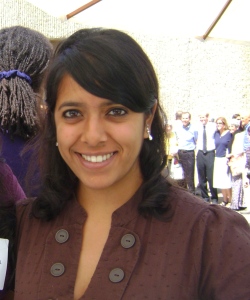I spent my Easter Sunday racing around the King’s Cross neighborhood in search of 3 kilograms of rigatoni, a significant departure from the way I’ve spent the holiday in previous years. The heat and humidity, along with the fact that it was a bank holiday, made the experience far from pleasant. When I returned to the shelter an hour later, I was sweaty and exhausted, but triumphant in my goal. I volunteer for an organization called Foodcycle, based in Central London. Every Sunday, we collect surplus food from grocery stores and farmers markets to cook nutritious, vegetarian meals for the homeless in our neighborhoods. The process is exhausting—we visit three separate sites and carry approximately 40 kilograms worth of bread and produce to the kitchen where we operate. For the next five hours, we’re cooking about 40 three course meals, serving our beneficiaries, and washing a seemingly infinite number of dishes. When we finish for the evening we’re physically drained—however, I feel that I can speak for all of our volunteers when I say that the work is spiritually and emotionally rewarding.
Every Sunday I see the same faces line up to be served—however, my peers in the kitchen change weekly, drawn from a seemingly endless pool of eager volunteers. The devotion each volunteer exhibits is something I’ve never experienced outside of Georgetown. Many of them attend the London School of Economics (LSE) as full-time students or hold full-time jobs—in some cases, both—but all are enthusiastic about giving up their precious free time to serve people they’ve never met. Competition for cooking spots is fierce—our rota is filled up weeks in advance, and cancellations are rare.
However, I’m not sure that what I’ve encountered is pure selection bias—that our volunteers represent a microcosm of the British population who are extremely committed to service. The United Kingdom’s spirit of volunteerism is obvious to any casual observer. LSE’s Raising and Giving society is one of the largest organizations on campus. A different charity collects on every street corner, and it seems as if a national fundraising campaigns is always taking place. Most recently, Red Nose Day called upon citizens to “do something funny for money”—the whole city was dressed up in outlandish costumes, comedians performed for charities, making the spirit of giving as contagious as the laugher that accompanied each performance.
Georgetown’s tradition of service stems from our mission as “men and women for others.” Though the Church of England is officially established, only 15 percent of the UK population attends church at least monthly (2007 study by Tearford). Additionally, a 2003 study found that only 35 percent of the UK population “believes in God,” compared to 73 percent of Americans. In his speech at the beginning of Michalmas Term, former LSE director Howard Davies remarked that it’s perfectly possible to become elected to political office in the United Kingdom as an atheist, a feat that’s nearly impossible in the United States. As an atheist, I’m well aware of the fact that religion isn’t the only source of morality or empathy for others, but I am surprised at the way that charities have managed to engage people of all ages and backgrounds to give back to their communities and the world at large—in my experience, a role that is often occupied by religious organizations.
The invisible presence of organized religion in the United Kingdom leaves me with mixed feelings. The community that a church offers is unique, and its benefits often extend to more than its immediate members. I do miss Georgetown’s emphasis on reflection and personal development, something that I’ve tried to recreate for myself here in London. On the other hand, I’m happy to live in a place where religious considerations don’t dominate politics in the same way that they can in the United States—though the United Kingdom has its own share of political problems. My time apart from Georgetown has made me nostalgic for the times I’d catch the faint sound of 11:30 Mass from Dahlgren as I walked to the ICC to study, and the presence of the Jesuits I love and respect on campus. I know that my own personal development owes a lot to both my family’s and Georgetown’s different spiritual traditions, but my experience at LSE has allowed me to observe the counterfactual. While I can’t say whether a country with a stronger religious tradition is any better or worse off than others, I can say that service is an integral part of my life. Whether sponsored by a church or not, and I’m glad to have the opportunity to serve here in the United Kingdom.

